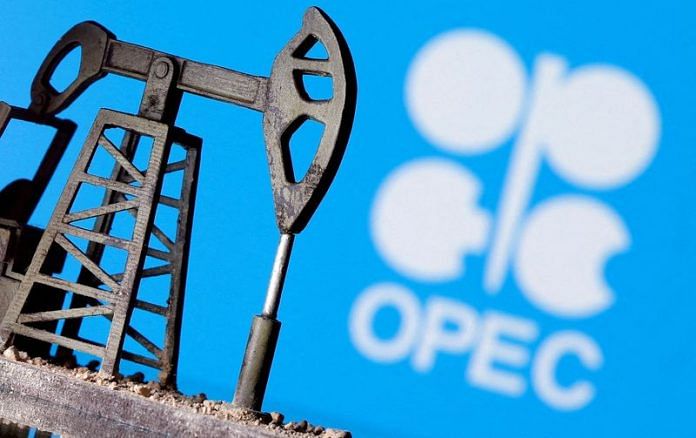By Nicole Jao
NEW YORK (Reuters) -Oil prices inched up on Monday on fears that a widening conflict in the Middle East could curtail Iranian crude supply, but prices were headed for a third straight monthly loss because of concerns about waning global demand.
Brent crude futures for November delivery, expiring on Monday, fell 17 cents to $71.81 a barrel as of 1:30 p.m. EDT (1730 GMT). The more actively traded Brent contract for December delivery was up 38 cents to $71.92. West Texas Intermediate (WTI) futures rose 30 cents, to $68.48.
Brent was headed for about a 9% month-on-month loss, which would be its biggest decline since November 2022, and an 18% loss for the quarter. WTI was set to decline 7% since the end of August and 16% for the quarter.
On Monday, prices were supported by the possibility that Iran, a key producer and member of the Organization of the Petroleum Exporting Countries (OPEC), may be directly drawn into a widening Middle East conflict.
Since last week, Israel has escalated attacks, conducting strikes which have killed Hezbollah and Hamas leaders in Lebanon and hit Houthi targets in Yemen. The three groups are backed by Iran.
The market is weighing whether the Middle East conflict will spread in the region, said Tim Snyder, economist at Matador Economics.
Oil prices had a muted response to Beijing’s announcement last week of fiscal stimulus measures in the world’s second-biggest economy and top oil importer.
Traders question whether the measures will be enough to boost China’s weaker-than-expected demand so far this year.
Concerns about rising global crude supplies are also weighing on prices for the month.
Oil prices slid last week on a report that Saudi Arabia, which is the de facto leader of OPEC, was preparing to abandon its unofficial price target of $100 a barrel for crude as it prepares to increase output.
“We are proceeding on the premise that last week’s Saudi decision to ramp up production in December will be an overriding bearish consideration to this market for weeks to come,” said Jim Ritterbusch of energy consultancy Ritterbusch and Associates.
Data on Monday was not encouraging for demand, showing China’s manufacturing activity shrank for a fifth straight month and the services sector slowed sharply in September.
The prospect of Libyan oil output recovering also weighed on the market. Libya’s eastern-based parliament agreed on Monday to approve the nomination of a new central bank governor, a move that could help end the crisis that slashed the country’s oil output.
(Reporting by Nicole Jao and Laila Kearney in New York, Paul Carsten in London, Gabrielle Ng and Katya Golubkova; Editing by Jan Harvey, Louise Heavens, Jonathan Oatis, Keith Weir and Leslie Adler)
Disclaimer: This report is auto generated from the Reuters news service. ThePrint holds no responsibilty for its content.



